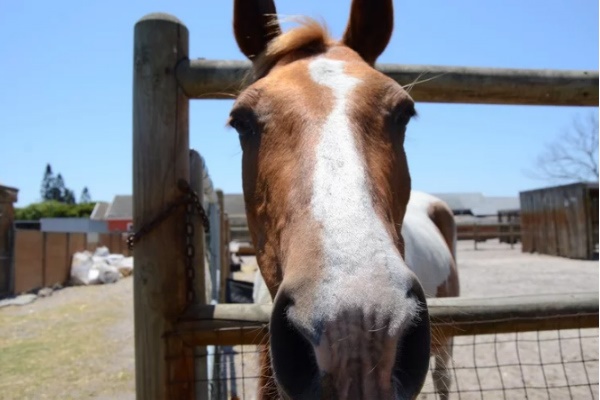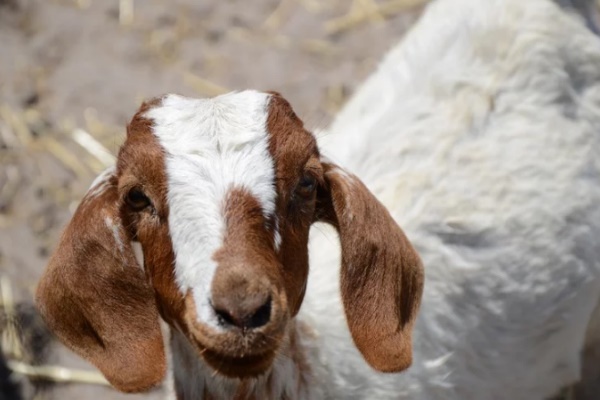The SPCA has adoption centres throughout the country. Some of the bigger branches deal with anywhere from 800 to 1 200 adoptions each year
A cut in funding from the national lottery has forced the Society for the Prevention of Cruelty to Animals (SPCA) to reduce its free services, including the work it does in poor communities.
Since its launch 62 years ago, one of the services it has offered is the care and treatment of beasts of burden, like donkeys, horses and oxen, which many people in rural and other marginalised communities depend on to work the land and for transport, according to a report on GroundUp’s website.

[Some SPCA branches have Horse Care Units, where horses and ponies that have been abandoned or abused are nursed back to health before being re-homed. (Roxanne Joseph, GroundUp)]
For the past 15 years, the SPCA and its branches across the country have received tens of millions of rands in funding from the National Lottery Commission (NLC).
But in 2017 that funding was cut after the NLC announced a shift in its focus to poverty relief, leaving the SPCA and other animal welfare organisations scrambling to make ends meet.
READ MORE: Buyel’Ekhaya in Lotto millions pickle
Marcelle Meredith, the executive director of the National Council of SPCAs, described the decision as “short-sighted and inexcusable” in a statement released at the time the NLC announced the change in its focus.
“We found out via the media that animal welfare organisations were not being considered for funding for 2016/2017,” Meg Wilson, the SPCA’s head of communications, said in an email last month.
Beneficiaries encouraged to ‘find other sources of funding’
The organisation was then informed that applications for funding within the charities sector for 2016/2017 would focus on areas aligned to the National Development Plan (NDP), which “only included helping vulnerable people and crime prevention”.
After writing to the NLC to query the decision and voice its concerns, the SPCA received this reply: “Unfortunately, animal welfare is not one of the focus areas for this year’s open call for applications, and therefore your application will not be accepted this time around. The criteria also exclude some other sectors for this call.”
“Not only does animal welfare affect communities, but the upliftment of animal welfare affects society in totality,” Wilson said, adding that the work the organisation does goes beyond animal welfare.
The NLC responded directly to the SPCA’s concerns with a statement several months after the initial announcement, which encouraged beneficiaries to “find other sources of funding so that they do not build a dependency and an entitlement to NLC funding”.
Animal welfare has once again been excluded from the next round of funding applications (2017/2018), according to an advert on the NLC’s website.
Despite this, the SPCA is applying for funding, according to Wilson.
Free services to the poor since 1955
“The [SPCA] does enforce the law and in some of our portfolios, we do prevention and early intervention for the vulnerable.
“The work done by the SPCA and animal welfare organisations may not seem to fit in the category of poverty relief, but the SPCA has been providing free services for the animals of poor people since 1955.
“This care is not only aimed at domestic animals; the SPCA also treats and cares for beasts of burden — horses, donkeys and oxen — which their owners use to grow food, earn a living, and for transport. They also treat cattle, sheep and goats, which people depend on for food and meat.”

[A large focus of the SPCA’s educational programmes is to teach people living on and around farms how to properly care for the animals that are often a major source of livelihood for them and their families. (Roxanne Joseph, GroundUp)]
Just looking at the impact that the illegal donkey skin trade has on communities, as well as the direct link between violence against animals and humans, the effect that the SPCA has in the work that it does far exceeds just animal welfare,” said Wilson.
The SPCA has adoption centres throughout the country.
The loss of such a significant source of funding has had a major impact on branches across the country, including Grahamstown, Empangeni and King William’s Town. These branches work in multiple rural communities, assisting hundreds of animals each month.
Donkey skin trade ‘detrimental’
In Grahamstown, the organisation works with a large rural community, running outreach programmes, offering vaccinations and sterilisations, visiting schools and meeting with local groups.
It also works alongside other welfare organisations and local vets.
“We form connections within the communities to better understand their needs,” said centre manager Mark Thomas.
In the past year the branch has been focused on the trade of donkey skins throughout the area.
The skins are exported to China, where they are in high demand because of pseudo-scientific beliefs about their medical properties.
Thomas described the impact of the trade as “detrimental” because of the reliance of these communities on donkeys for all forms of transport.
The donkey population between Grahamstown and Peddie has been decimated and there are very few donkeys left there.
‘Animal welfare is inextricably linked to human welfare’
But the SPCA continues to offer support to other communities and their animals, he said.
Sufficient funding has, until now, enabled the organisation — and others like it — to work in communities that are affected by the donkey skin trade, and educate people on how to properly care for their donkeys and farm animals. Communities were also educated on how to spot the signs of a possible trader.
“These donkeys are a massive part of these people’s lives,” said Tara McGovern, a spokesperson for the SPCA Cape of Good Hope branch.
“They are loyal beasts of burden, and are used for vital community activities like transport and trade.”
The decision by the NLC does not make sense because “animal welfare is inextricably linked to human welfare” and the alleviation of poverty, throughout South Africa, she said.The national lottery has allocated R138m to animal welfare organisations since 2002, which is 1.29% of the total R10.7bn allocated in the charities category of the NLC’s funding.
‘It is a dire time for the organisation’
While NLC funding of the SPCA has varied over the past 15 years, it has remained an important source of financial support for the organisation throughout that time, with an allocation total of R128m.
The SPCA receives no funding from government and relies on lottery funding and the generosity of the public to ensure that it can continue the work it does.
Wilson said: “It is a dire time for the organisation. And although we work tirelessly to raise funds because we know that lottery is not a guarantee, without that funding, it can be detrimental to the organisation.”
The SPCA takes in more than 237 000 animals each year.
In 2017, it responded to more than 42 000 complaints of cruelty.
In the past, funding from the lottery has been allocated to buying vehicles that are used to transport animals and reach outlying communities.
The funding is also used for outreach projects, property maintenance and upgrading, veterinary costs, animal handling equipment and salaries, among other expenses.
The lottery has also funded other animal welfare organisations, including The Emma Animal Rescue Society, African Tails and the Animal Anti-Cruelty League.— GroundUp